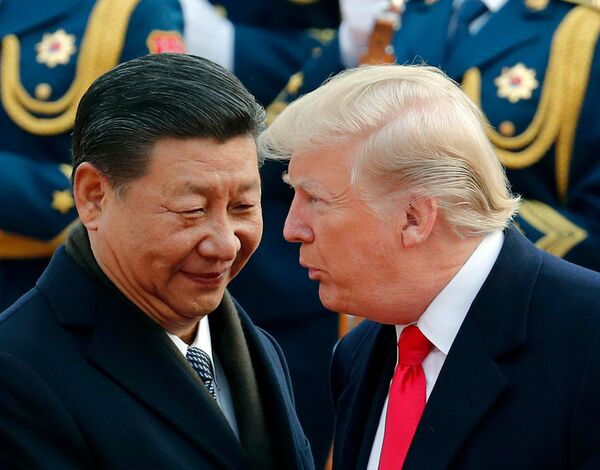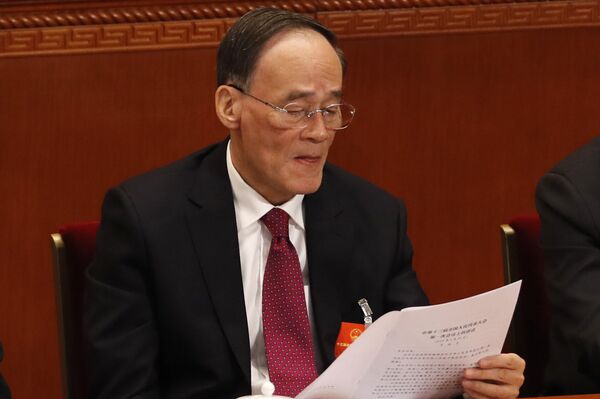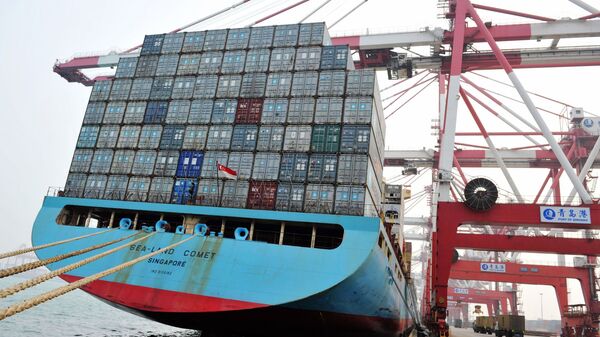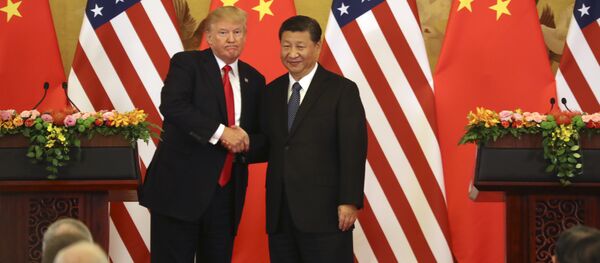Sputnik: Are you at all surprised by the US plan to introduce new tariffs against China?
Yun Sun: I think the only surprising element here is that some people actually find it surprising.
We know that this trade negotiation between Beijing and Washington has come back and forth with a couple of rounds. So I think the timing is a little bit curious, because the announcement came literally two days after the Singapore summit, which was regarded as a success, at least by the Trump administration. It's curious how the United States sees China playing a role in this relationship with North Korea, and how this relationship can be leveraged either for or against the trade dispute.
I think the Chinese keep thinking that because last year President Trump promised us that if we help the United States on North Korea, then the trade deal we're going to get is going to be much better. But now it seems that the US is making progress on the issue of North Korean denuclearization, and the trade deal that China is getting is so much worse. So from the Chinese perspective, there are a lot of grievances and a lot of complaints.

Sputnik: What's your feeling generally? Is there a disproportionate balance on trade in favor of China stemming from previous administrations? Is President Trump just doing something that's common sense from a business perspective and to the benefit of the US economy?
Yun Sun: That has been President Trump's argument – that the United States is not afraid of fighting a trade war because it has been running such a large deficit that if there is going to be a trade war, the country with a surplus vis-à-vis the United States is going to lose more…
That's his logic, although economists have pointed out that this logic is flawed. I think at this point we know that it's the style of President Trump, and trade is a priority issue.
But now I think people are less optimistic about this judgement, because the US and China have had previous rounds of negotiations, and [issues] were resolved in those previous rounds. Now it appears, at least to the Chinese, that President Trump has had no problem revoking whatever his prior commitments, or whatever prior concessions or compromises were reached in the previous negotiations. That then raises the question of whether the US was really negotiating with good faith in this trade issue.
Based on what the Chinese government announced yesterday, if the US is insisting on imposing this special tariff on Chinese imports, then other results from previous negotiations are going to be revoked by the Chinese as well. [The message is] 'don't expect China to implement the agreements that were previously reached either'.

Sputnik: Do you think this is now going to get out of control, with regard to tit-for-tat tariffs being positions against each other's products and deteriorate into a lose-lose situation?
Yun Sun: At this point, if the current momentum keeps going forward, we are going to see some small clashes to begin with. Both sides are determined to show the other side that they're in this for real, that they're determined to correct the policies that correct their interests.
I think after the past several rounds of negotiations, Chinese patience, or Chinese goodwill is also exhausted. So I would not be surprised if there are indeed clashes between the US and China in terms of trade, meaning that both sides impose tariffs and countermeasures and retaliations against each other to begin with.
Some Chinese [observers] have pointed out that Beijing has not dispatched its 'king card', Wang Qishan, who in the past has had years of experience negotiating with the Americans. They've pointed out that Wang Qishan has not been dispatched to resolve this issue, and that this would be almost a last resort in terms of negotiations, if it comes to that.
So there is still some room for maneuver; if you read the US PR statement carefully, you will notice it also says that the special tariffs will not be collected until July 6. That's almost three weeks [from now]. So I think the American side is also leaving some room for maneuver for China to make concessions. Whether China will make concessions is the question.

Sputnik: From your perspective, your experience from interacting with people in Washington, how is the China trade issue going to affect the mid-term elections? Is President Trump strengthening his position, or is it going to be one of those mid-term elections where the president loses face and control of Congress?
Yun Sun: If you look at Trump's approval rating domestically, it is pretty strong. If you look at his tax cut policy and his enhanced support of the defence industry, I would say that the domestic support for Trump's economic policy is positive.
If you look at how the stock market in New York responded to this announcement of a special tariff against Chinese imports, the stock market did not really respond. There was a slight drop of eighty-something points, which is less than 0.05% of the Dow Jones. So I would say that this trade war with China seems to have exhausted the excitement or the reaction of the market, and I don't think an active response is really there.
Yun Sun is the co-director of the East Asia Program at the Stimson Center think tank in Washington, DC, and a non-resident fellow at the Brookings Institution. The views expressed by Yun are those of the speaker and do not necessarily reflect those of Sputnik.





